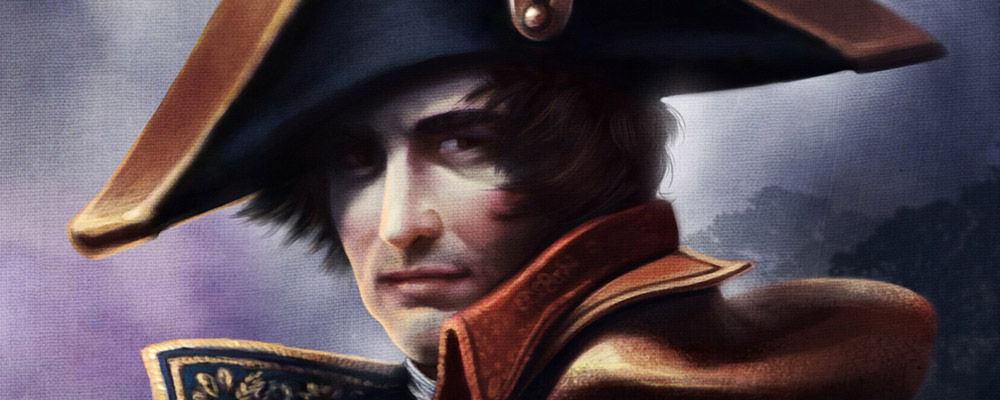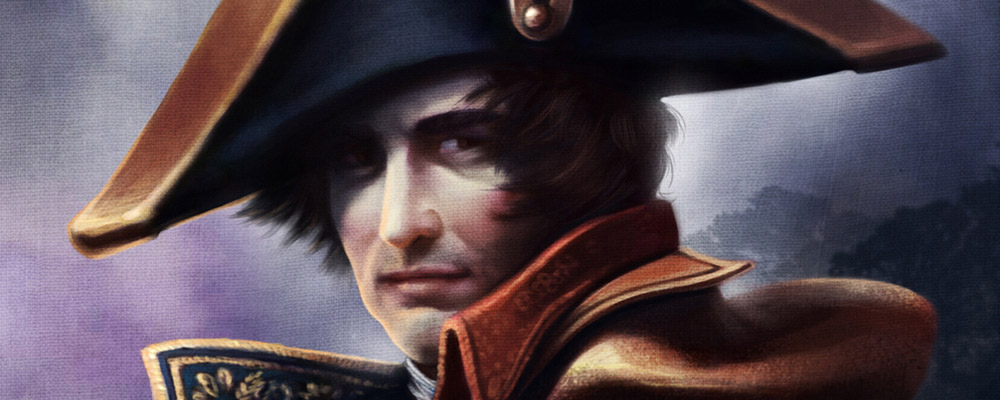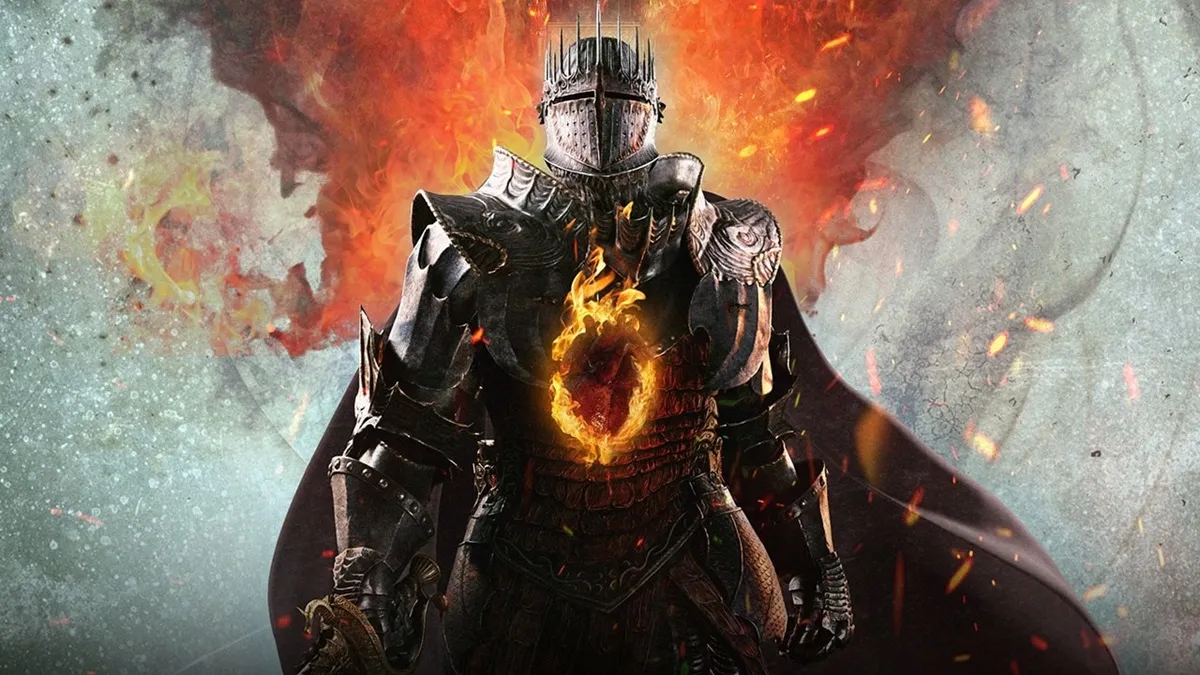Fear the French
There was a time when a great many nations rightly feared the French. They feared the spread of rebellion and revolution, and after that, they feared an angry Corsican fellow who would become Emperor of France. Napoleon and his empire worried the rest of Europe so much that a series of wars kicked off, lasting over a decade.
The Napoleonic Wars are the subject of Paradox Development Studio’s latest strategy outing. Covering 1805-1815, it’s a rather focused affair, one that has something of a military bent as one might expect for that period. I got to terrorize Europe with the Grande Armée for 45 minutes, and after I got over my initial feelings of guilt, I found myself becoming quite the would-be conqueror.

March of the Eagles (PC)
Developer: Paradox Development Studio
Publisher: Paradox Interactive
Released: Q1 2013
There’s something a bit special about the first turn of a grand strategy title, especially if you just dive in and don’t muck about with tutorials or manuals. One is faced with the vast map — in this case, an extremely familiar one — filled with cities, armies, fleets, and the promise of war. Hidden menus reveal more information than you can shake a stick at, and a plethora of complex systems are there to be explored.
Nations start with a few options; for instance, the French can go west and start the Peninsular War, or they can look to the east and plan an assault against the lumbering behemoth that is Russia. These gambits are an important feature of March of the Eagles, adding context, multiple routes to victory, and tying actual history and the history you want to make together rather well.
As always, I spent my first turn clicking on things to see what I could gleam from the various menus, statistics, and historical flavor, as Chris King, lead designer, pointed out items of interest and gave me much needed strategic assistance.

I was playing as France, but that’s far from the only nation available. Nations are split into two tiers, the super powers like France, Great Britain, Prussia and so on, and, as Chris described them, “the rest.” The larger powers have unique victory conditions that must be met by the end of the wars, whereas the smaller countries win by being on the victorious side.
It makes sense from both a historical perspective — it was an age of coalitions — and a gameplay one. A minor state has no chance of going toe to toe against a force like the Grande Armée, but it wouldn’t be much fun if they couldn’t get involved in the massive conflicts. It inspired alliances and working together with multiple nations, and even playing as France, I found myself needing to use my foreign chums quite a bit.
Coalitions are an intriguing feature, and much more involved than the straightforward alliances. These coalitions are made up of multiple states and directed against the naval- and land-dominant powers. Only two coalitions can exist, one to oppose each of the dominant nations, and the game starts with the French Coalition and the British Coalition. These loose alliances of convenience are usually led by one of the dominant powers the other coalition is fighting against.
France starts the game land dominant, and quickly I was able to check what important provinces I needed to secure for victory. However, winning isn’t a matter of just grabbing provinces — one also needs to end the dominance of their enemies. First and foremost was Blighty.

Great Britain was throwing its weight around in the Channel, flaunting that massive fleet like a trophy bride. I may have been in control of a vast force of men, horses, and artillery, but it was the British who ruled the narrow stretch of sea separating our two warring nations. I attempted to rile them up by sending in the bulk of my ships to attack a smaller fleet, only for more enemies to appear on the map almost instantly. A quick scrap later and I’d scarpered, sending my ships back to the protective bosom of the port, which was immediately locked down by my foes. Bloody blockades.
Despite the large changes that militaries went through in the post-revolution world, in little over a decade, there wasn’t a vast amount of technological advancement. So, instead of researching large numbers of technologies, players can invest in national ideas, something anyone who has played Europa Universalis should be familiar with. They provide bonuses for all manner of things, from increasing the number of troops that can fire at once, to increasing unit movement speed. After my embarrassing naval battle with Britain, I was keen to make some improvements to my navy. Initially I thought about improving my ships’ speed, however, such decisions are not be made in haste.
Provinces provide a range of different bonuses, increasing the effectiveness of the various facets of your military. While Britain had an edge at sea right now, if I captured specific provinces I would be able to catch up quickly. A few Prussian provinces would make me a much more formidable opponent on the high seas. So, instead of directly improving my fleet with a national idea, I opted to improve my land forces, which would in turn allow me to take more enemy provinces, and eventually have more naval dominance without wasting points on the naval-based options.

With my aquatic ambitions in the north cut short, I brought up the list of my settlements and selected a port in the sunny Mediterranean, setting about building up a new fleet there. My coastal target was heavily fortified Gibraltar, unassailable without navies and armies working in tandem. Taking the province would end Britain’s naval superiority as well as a lot of income. Unfortunately, I had no troops anywhere close to the fort, and my ships would take some time to finish being constructed.
In the mean time, there were whole countries that weren’t at war with my rival, Great Britain — this was not acceptable. While I had a few states helping me against the Brits, my ally, Spain, had not joined the fray. Luckily, the Spanish were keen to jump in, and swiftly accepted my invitation to war. Not fans of Britain, to say the least. Conveniently, my allies were right next to Gibraltar. With a Spanish land invasion and a French naval one, that fortress was sure to fall.
The fates conspired against me, and no sooner than I had set my sights on the British stronghold, half a dozen enemy fleets appeared. I had no chance. A stalemate occurred, with the Spanish invaders hammering uselessly at the massive walls, and the British fleet incapable of doing anything other than make sure I couldn’t aid my allies. My hopes were dashed.
During this time, I had also been buddying up with Denmark, a potential ally against Britain in the north. The Danes agreed to an alliance, but I had to wait for my diplomat to recover with some fine wine and cheeses before I could send him off to encourage my new friends to join in the war effort. As I waited, a significant British force was preparing to invade northern France. Little did they know that I had several incredibly huge armies — all positioned to crush any invader. Appropriately, these marshals all sported magnificent sideburns.

Little old Brunswick decided to send a pitiful army against me as I waited for the British to appear. I had an army close by, so I sent them forward for a bit of light exercise. Armies can have three leaders, two for the flanks and one for the center, and can be filled from a large pool of historical generals. Each has bonuses and and statistics that need to be taken into account when assigning them commands. Experience in battle confers upon them new traits, which gives them more character and distinctiveness, and may go on to inform the player’s decision on which army to put them in charge of.
The slowest speed setting goes by in hours, allowing players to make quick changes or hastily send in more troops during battle. In the midst of conflict, one can see how it’s all playing out, showing the strength of the different forces and the status of the flanks, and once it ends, a little flavor is added by a battle narrative. I have no doubt that I’ll spend a considerable amount of time reading these little battle tales, which colorfully describe the scene and the twists and turns of a large battle that, for the player, goes by in a matter of seconds.
With Brunswick soundly trounced, I was able to dictate the terms of their surrender. Instead of annexing the nation, outright, I opted to make them a loyal vassal, denying my hated nemesis another continental ally.
Portugal got a bit bored and thought they could handle a war with yours truly. For a moment, I considered letting the Spanish deal with their neighbor alone, but Chris reminded me that Lisbon was one of my victory provinces; so it would be worth my time to get stuck in. Right, I thought, time to bring out the big guns. I found Napoleon himself, and promptly sent him all the way across France and Spain, straight to my new foes, the Portuguese. This would take a while, so I took the time to throw my money around.

Prussia, who I was inevitably going to go to war with, was hassling poor little Mecklenberg — I’m no fan of bullies. Well, not unless I’m the one doing the bullying. I wasn’t quite ready to commit forces against the Prussians, so I sent Mecklenberg money, hoping that it would go towards killing lots of the super power’s forces.
All the while, the dastardly British were fighting me, countless soldiers falling against my indomitable armies. Unfortunately, my navies weren’t doing nearly as well. Regardless, I’d gained a vassal, and had lost no provinces at all, and no land battles. Napoleon was still making his way to Portugal, the Spanish were knee-deep in Portuguese blood, and even the Pope was making his way to crush them. It was going to be quite the party.
I had positioned a rather large army on the Prussian border, watching their fight with Mecklenberg. Despite my aid, the smaller state was utterly destroyed. Prussia was solidifying its position. Fine then, I thought, there are other German states which I can support or take over to weaken my potential future foe.
With my blood up, I selected my next target: Baden. Expanding west seemed like a lovely idea. I gave command of my invading forces to Étienne MacDonald, son of a Scot — yes, I was trying to get a sort of Scottish victory before I finished playing. The make-up of an army is of great importance, and with different units, varying special tactics are made available to players. I had a back-up force made up exclusively of cavalry, just in case the soldiers of Baden decided to flee.

Against my absurdly large force, Baden didn’t stand a chance. Infuriatingly, the Swiss decided to get involved, presumably hoping to pick clean the bones of my enemy. Baden’s end came swiftly, with my troops assaulting the single fortress. Fortresses recapture provinces unless you take them, so it’s important to get your soldiers inside and take them out of enemy control. Following this final assault, Baden was annihilated — another glorious victory for my Grande Armée.
With that heroic act, my time with the game came to an end. Despite being focused completely on warfare — with economics, province improvements, and diplomacy all existing only to fund, aid, and start wars — it feels just as complex and content rich as Paradox’s other grand strategy offerings. In 45 minutes, I’d managed to conquer two nations, get into a significant number of fights with the Brits, and I’d started to work towards conquering victory provinces — quite a bit for a brief glimpse.
There is still some balancing and polishing needed, though it’s completely playable at this point. With a release date somewhere around the first quarter of next year, there’s still plenty of time left for that, one hopes. Much like with Crusader Kings II, Paradox appears to have made March of the Eagles a lot easier to get to grips with than their older titles, with an intuitive UI, and a lot of easily discernible information being available at the press of a button. Hopefully I’ll be able to take a more in depth look as it gets closer to launch.
I never did get to conquer Gibraltar. Bugger.





